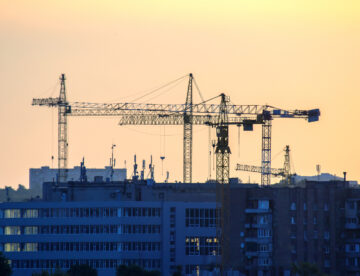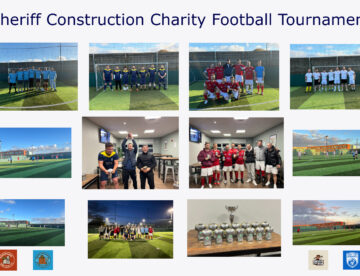
We’ve reached that time of year again. It’s a few weeks since the clocks turned back, the afternoons feel like night-time and many people in construction – whether on site or in office-based roles – are starting and finishing their working day in the dark.
Shorter, darker days can increase the risk of accidents on site, make commuting more hazardous and create extra opportunities for crime. The good news is that a few simple habits and precautions can make a big difference. In this blog, we look at three key areas for staying safe: working on site, driving to and from work and protecting sites from crime.

On Saturday 8th November, Sheriff Construction held a charity football tournament at Play Football in Stopsley, Luton, as part of our Big Charity Challenge celebrating 20 years in business.
As well as giving our teams and their supporters a great afternoon out, the event has raised an incredible amount for our three charities of the year. Keep reading to find out how the tournament played out – and which team was finally crowned the winners!

When working on a construction site, actions like lifting, bending, climbing and moving in awkward positions are often part of the everyday job. Because of that, it can be easy to think this kind of work is enough to keep you physically fit.
The fitness industry would disagree – arguing that when people who carry out physically demanding jobs also adopt a structured fitness programme, it can lead to better performance, reduce downtime and extend careers. Find out more about why fitness matters so much and download a sample programme in this week’s blog.

Last Thursday, Sheriff Construction officially marked its 20th Anniversary in business at a celebratory Gala – bringing colleagues, clients, suppliers, friends and family together for a truly memorably evening.
We gave a flavour of what happened on this special occasion on our social media last week with a promise to share a more detailed update. Now, take a look at this week’s blog for the full story.
